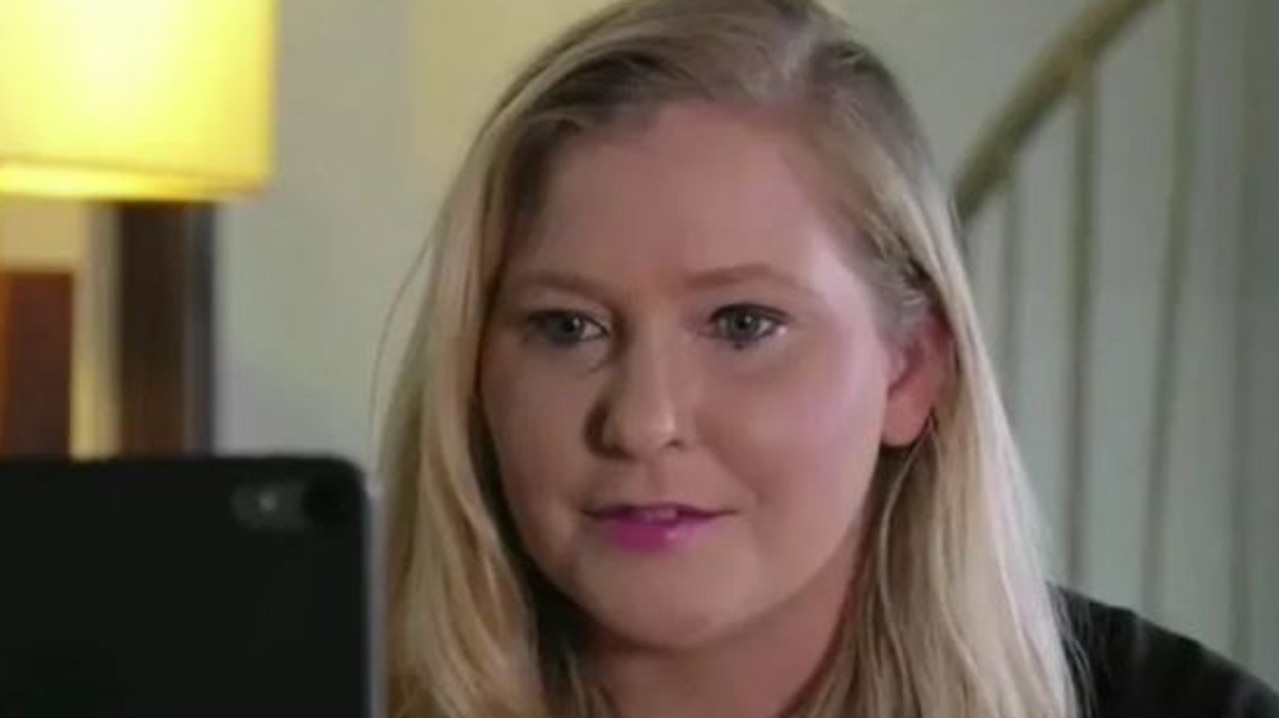‘Won’t stand for this’: Up to 1,700 trucks converge on Perth CBD in protest of live export legislation
Over a thousand trucks and farm vehicles have gathered in an Australian CBD to demand the government retract an industry-crushing decision.
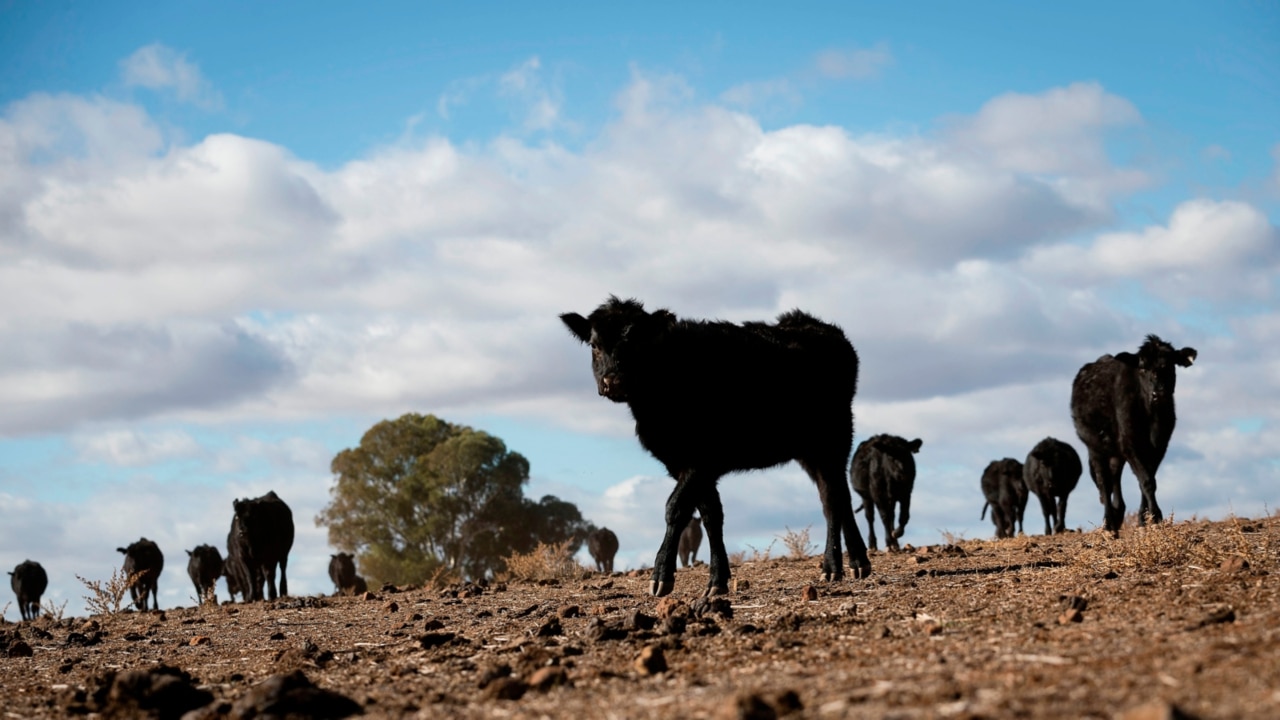
WA News
Don't miss out on the headlines from WA News. Followed categories will be added to My News.
Over a thousand trucks and farm vehicles have set up shop in Perth’s CBD, blaring their horns in unison as part of a large-scale protest against the planned cessation of the live sheep export trade.
Traffic has ground to a near standstill on several of Perth’s main roads as the “Keep the Sheep” convoy enters the city from four different suburban starting points.
The demonstration comes in response to the Federal Government’s recent legislation, which sets a definitive end date for the live sheep export industry from Australia, effective May 2028.
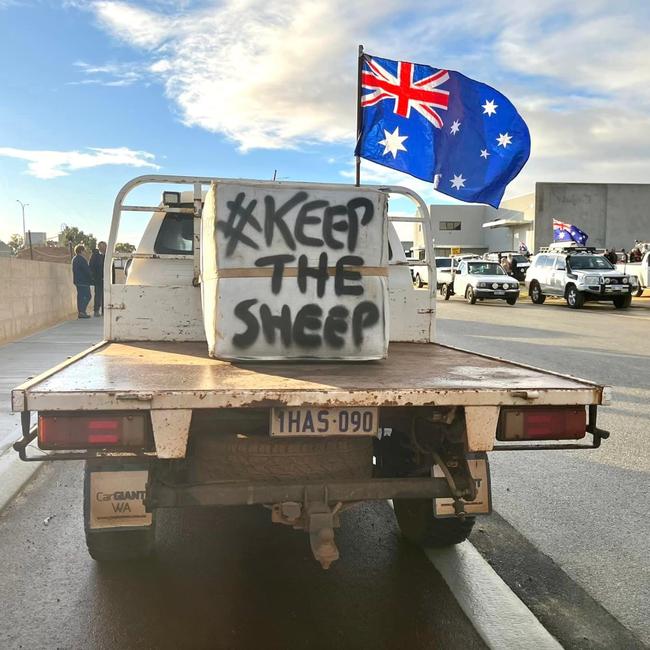
“We’re all getting sick and tired of being told what to do and how to do it,” Peter Warburton, one of the organisers, said.
“We’re here to stand up and show the government that we do listen and we’ve been doing the best way and you guys need to stand up and listen now.”
Mr Warburton said while the disruption cause from the protest could turn the public against farmers, it was important they “stand up to the Government”.
“It could turn a percentage (against farmers),” he said.
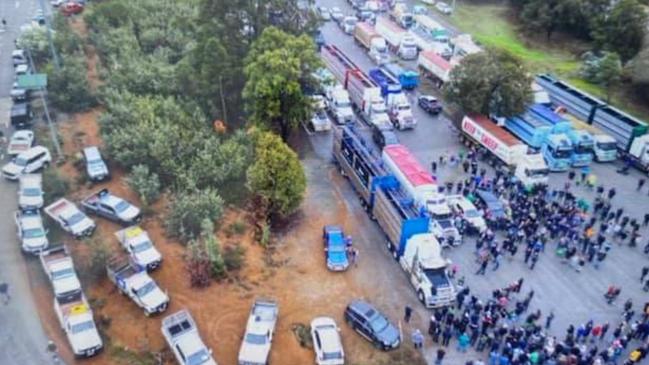
“But I hope they all go back on their social medias and their Google searches and type in ‘Keep the Sheep’ and see what we’re actually doing as an industry.”
Fellow organiser Paul Brown echoed Warburton’s sentiments, describing the government’s move as the final straw for rural communities across Western Australia.
“We’re just saying enough is enough. We won’t stand for this; we want the legislation revoked,” Brown asserted.
Organisers told the ABC they estimate up to 1,700 trucks participated in the protest.
It came after a farmer has savaged the federal government over its decision to scrap the controversial live sheep export trade, claiming it will leave people in his industry “broke”.
“It’s destroyed the industry on a whim,” David Slade, a livestock farmer from Mount Barker in Western Australia, told news.com.au earlier this month.
“Everybody’s really livid.”
On Saturday, the Albanese government announced it was funding a $107 million package over four years to help farmers transition out of the sheep export industry after it pledged to end the practice amid animal welfare concerns.
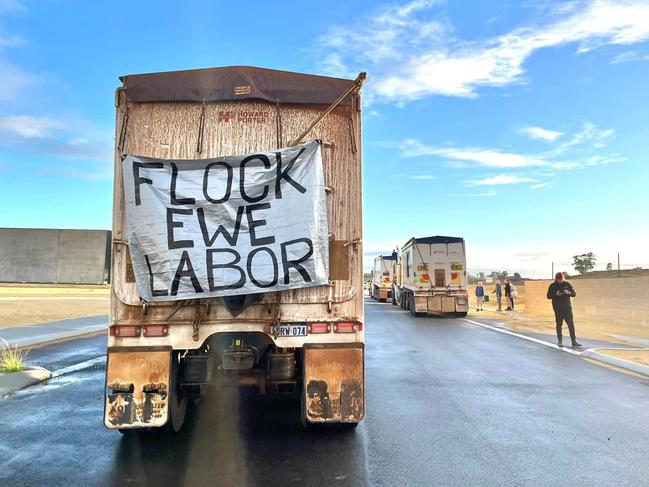
The plan is for the entire industry to be completely phased out by May 1, 2028.
The live sheep export industry was hit by controversy in 2018 when sickening footage revealed thousands of sheep had died aboard livestock vessels due to overcrowding and excessive heat.
However, according to industry figures, including Mr Slade, in the wake of years-old scandals, Australia has tightened its welfare standards and is now world-leading.
“Our welfare standards are absolutely top notch,” Mr Slade lamented. “It wasn’t good before, there’s no doubt about that. We own that. We’ve made sure that that doesn’t happen again.”
He added: “If it was justified, then I’d say okay. But it (the shutdown of the industry) is not justified.”
As part of the federal government’s phase-out plan, farmers, truck drivers, shearers and other workers along the live sheep supply chain are entitled to compensation.
They would share a $64.6 million package to diversify into new areas, with the government encouraging an expansion of the chilled meat sector.
“Quite frankly it’s an insult,” Mr Slade said.
“The money won’t even scratch the surface. It’s a billion dollar industry which they’re playing with.”
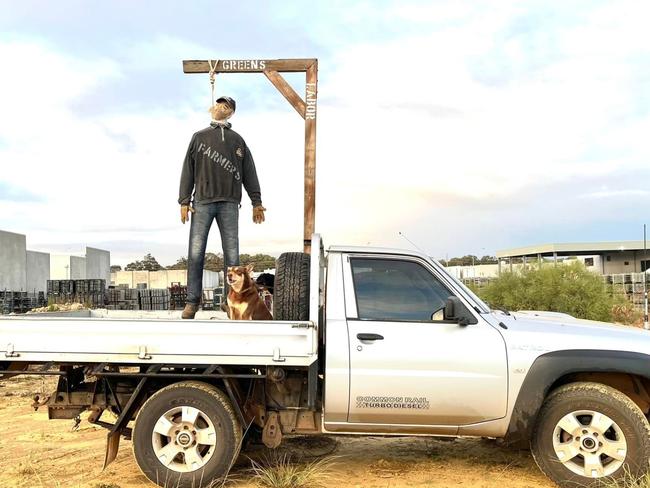
He revealed that those in the industry have been nervous for some time about the extreme measure, and his sheep farm has taken a massive hit as a result.
“We run 20,000 sheep. Because of this uncertainty we’ve had to go out of sheep into grain.”
Mr Slade’s farm is now two-thirds grain, as he was struggling to sell his sheep at the usual price because no one wanted them.
If he hadn’t switched to growing grain, “I’d go broke”. He said he made a loss for two years before making the switch.
The news comes at the worst time for those in the industry, rendering it a “perfect storm”.
“It’s the driest summer on record. We got some rain a week ago, that was the first rain in five or six months,” he explained.
Other industry heavyweights have reiterated Mr Slade’s concerns.
Agriculture Minister Murray Watt announced the end of the live sheep export trade by sea after releasing a report with 28 recommendations on winding down the system.
“We are giving certainty to sheep producers and the supply chain by legislating the date, and putting $107 million on the table to enable an orderly and well-planned transition away from the trade,” Senator Watt said in Perth.
But others were not impressed.
The National Farmers Federation (NFF) has also criticised the decision, describing the four-year timeline to phase out live sheep exports as “radical” and saying it had left farmers “shocked.”
It claimed it ignored industry advice that such a rapid timeline would spell “catastrophe” for farming communities, animal welfare and Australia’s global trading partnerships, the NFF added.
NFF CEO Tony Mahar said it was “devastating slap in the face” and described the announcement as a “bombshell.”
“Murray Watt has decided to book us on the express train to disaster, but this isn’t the final chapter in this story. We’ll keep fighting,” NFF CEO Tony Mahar said.
Originally published as ‘Won’t stand for this’: Up to 1,700 trucks converge on Perth CBD in protest of live export legislation





